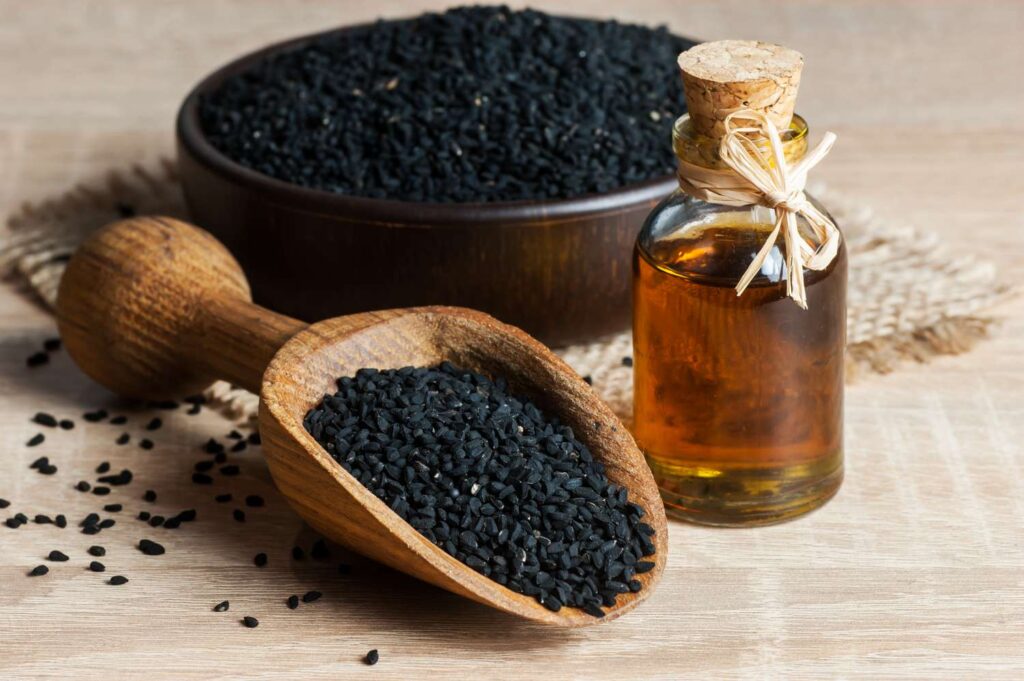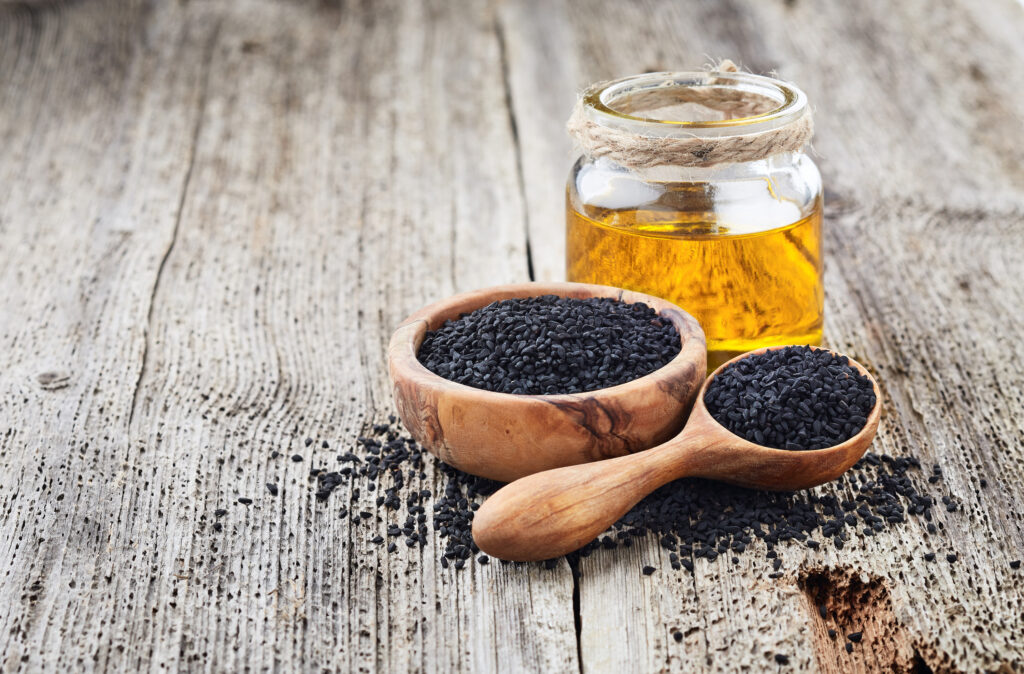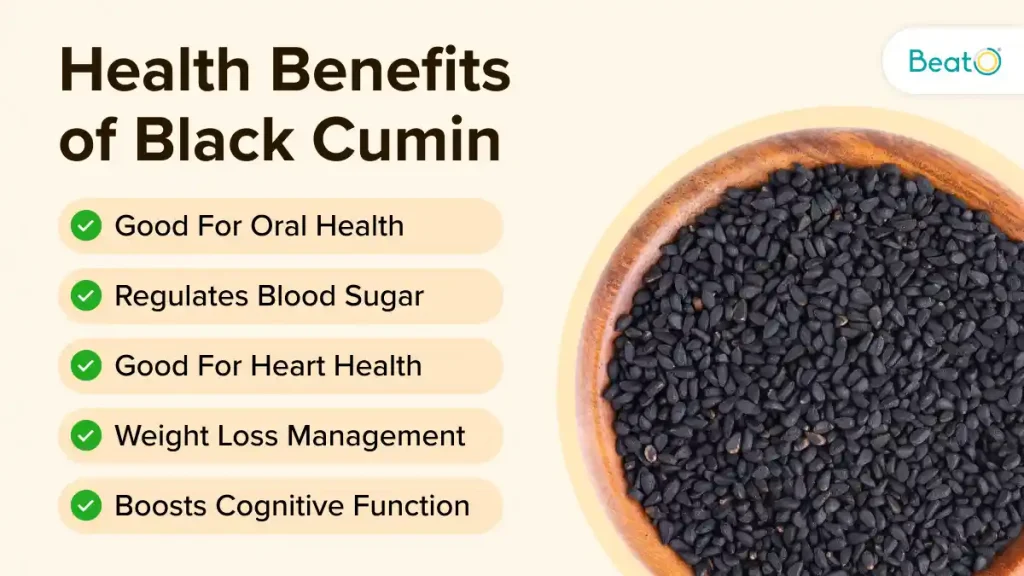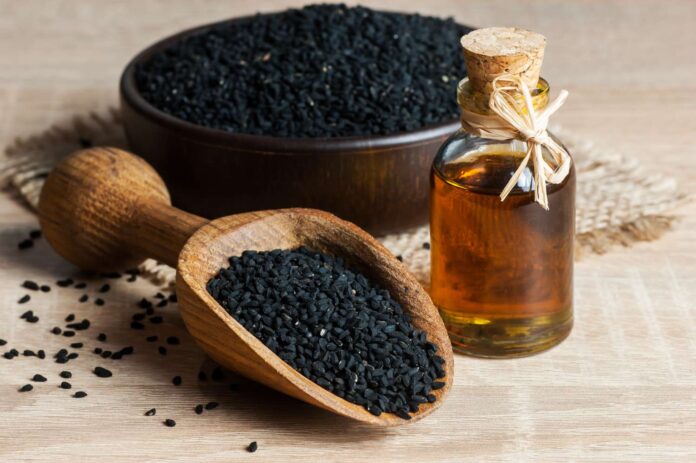What Is Black Seed?

Black seed is the common name for the seeds of the Nigella sativa plant. This plant is a small shrub with green leaves and white and purplish flowers. It grows worldwide, but most commonly in southern and eastern Europe, the Middle East, North Africa, and southwest Asia. It’s also known as nigella, black cumin, fennel flower, black caraway, Roman coriander, Habbatul Barakah (Arabic), Tikur azmud (Amharic), and Kalonji (Urdu).
Forms
Black seeds can be used or processed in various forms, including:

- Whole Seeds: The unprocessed seeds can be used as a spice in cooking, added to breads, salads, or curries.
- Black Seed Oil: Extracted oil from the seeds, commonly used for medicinal purposes, culinary applications, and in cosmetics for its skin benefits.
- Black Seed Powder: Ground form of the seeds, often used in smoothies, supplements, or as an ingredient in various dishes.
- Capsules/Tablets: Available as dietary supplements containing concentrated black seed oil or powdered seeds for easier consumption.
- Tinctures: Liquid extracts of black seeds that can be taken as supplements for their health benefits.
- Tea: Brewed from whole or crushed black seeds, offering a flavorful and health-promoting beverage.
- Essential Oil: Extracted oil used in aromatherapy or as a topical remedy for various skin conditions.
Health Benefits
Here are some of the notable health benefits of black seeds (Nigella sativa):
Healing Wounds
Due to its antiseptic and antibiotic properties, black seed oil can help treat small skin cuts and prevent scar formation at the site of the cut.
Soap
Black seed, along with other ingredients, can be used as a cleansing and moisturizing soap to wash your body. It may help you manage skin blemishes and irritation.
Black Seed for Weight Loss
Taking black seed oil as a supplement may help manage obesity and metabolic disorders. Recent studies suggest that its use as a supplement may reduce body weight and BMI, but more research is needed.

Black Seed for Allergies
Black seed oil in nasal drops may help improve itchy, runny, or stuffy nose, sneezing attacks, and other allergy symptoms in people with high fever. But it might make your nose dry.
May Lower Cholesterol
Cholesterol is a fat-like substance found throughout your body. While you need some cholesterol, high amounts can build up in your blood and increase your risk of heart disease. Kalonji has been shown to be especially effective at lowering cholesterol.
Cancer-Fighting Properties
Kalonji is high in antioxidants, which help neutralize harmful free radicals that may contribute to the development of diseases like cancer. Test-tube studies have found some impressive results regarding the potential anti-cancer effects of kalonji and thymoquinone, its active compound.
Could Help Protect the Liver
The liver is an incredibly important organ. It removes toxins, metabolizes drugs, processes nutrients and produces proteins and chemicals that are crucial to health. Several promising animal studies have found that kalonji may help protect the liver against injury and damage.
Side Effects
Black seed and black seed oil have proven largely safe in small doses, but some people may have a few side effects. Consider the following before taking black seed supplements:

- Gastrointestinal Issues
- Allergic Reactions
- Hypotension
- Blood Sugar Levels
- Pregnancy Concerns
- Interactions with Medications
- Liver Toxicity




